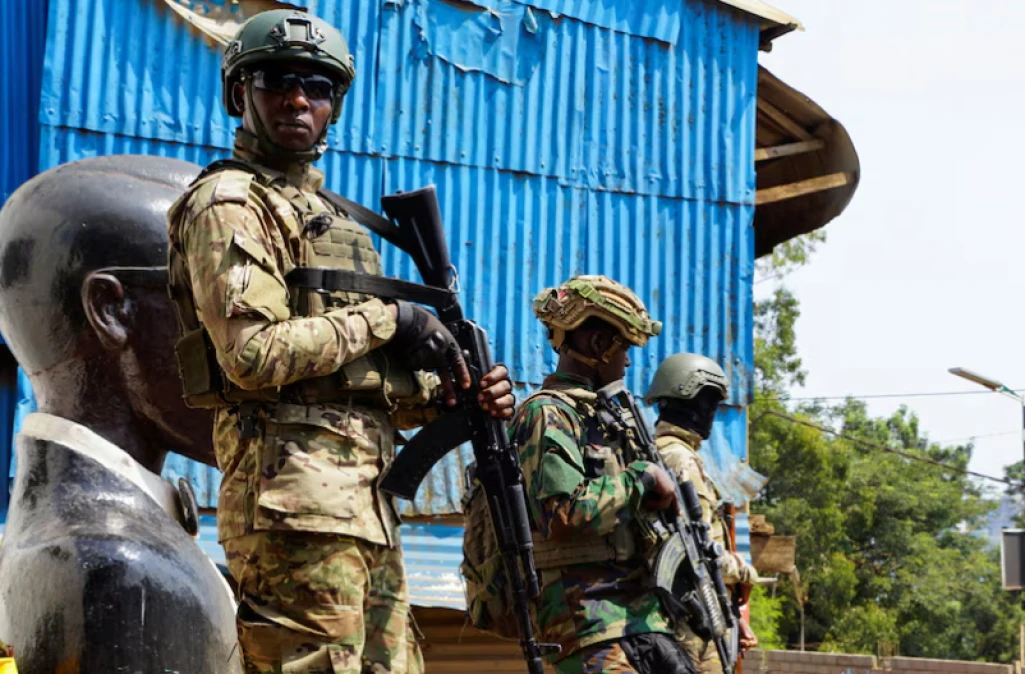
Rwanda-backed M23
rebels staging an offensive in east Congo said on Saturday they would
withdraw forces from the seized town of Walikale in support of peace efforts,
having previously said they were leaving troops there as they pushed on to the
capital.
The
government said it hoped the move would be translated into concrete action,
after M23 this week pulled
out of planned talks with Congolese authorities at the last minute due
to EU sanctions on some of its leaders and Rwandan officials.
The Reuters
Daily Briefing newsletter provides all the news you need to start your
day. Sign up here.
It would have
been their first direct engagement with Congo's government after President
Felix Tshisekedi reversed his longstanding refusal to speak to the rebels.
The Congo
River Alliance, which includes M23, said in a statement on Saturday that it had
"decided to reposition its forces" from Walikale and surrounding
areas that M23 took control of this week.
This decision
was in line with a ceasefire declared in February and in support of peace
initiatives, it said in a statement that was greeted with scepticism by army
officers.
A senior
member of the alliance who did not wish to be named said repositioning meant
withdrawing to "give peace a chance". The source declined to say
where M23 rebels would withdraw to.
"We are
asking for Walikale and surroundings to remain demilitarised," the source
said. "If the FARDC (Congo's army) and their allies come back, this means
they want to relaunch hostilities."
Foreign
Affairs Minister Therese Kayikwamba Wagner told reporters: "We are going
to see whether M23 will withdraw from Walikale and whether M23 will give
priority to dialogue and peace ... So we hope that this will be translated into
concrete action."
Peace
efforts
Congo's army
did not immediately respond to a request for comment.
An army
officer said he was sceptical about the announced withdrawal. Another officer
said M23 was advancing towards Mubi, another town in the area, after the army
and pro-government militia bombed Walikale's airport and cut off some of M23's
road access.
"They
now have a provision problem," said the second officer, who spoke on
condition of anonymity. "They will not withdraw. They will move in front
of (Walikale) and behind it."
A M23 officer
told Walikale residents on Thursday they were leaving a small group of soldiers
there to provide security, while other soldiers "continue all the way to
Kinshasa".
Walikale is
the furthest
west the rebels have reached in an unprecedented advance that has
already overrun eastern Congo's two largest cities since January.
Its capture
put the rebels within 400 km (250 miles) of Kisangani, the country's
fourth-biggest city with a bustling port at the Congo River's farthest
navigable point upstream of the capital Kinshasa, some 1,500 km (930 miles)
away.
There have
been several attempts to resolve the spiralling conflict, rooted in the fallout
from Rwanda's 1994 genocide and competition for mineral riches, including
several ceasefires that
were violated and regional
summits to open up dialogue.
Congo, the
United Nations and Western governments say Rwanda has been providing arms and
troops to the ethnic Tutsi-led M23. Rwanda denies this, saying its military has
been acting in self-defence against Congo's army and a militia founded by
perpetrators of the genocide.
The M23
alliance leader Corneille Naanga on Friday dismissed
a joint call for an immediate ceasefire by Congo and Rwanda and
reiterated demands for direct talks with Kinshasa, saying it was the only way
to resolve the conflict.